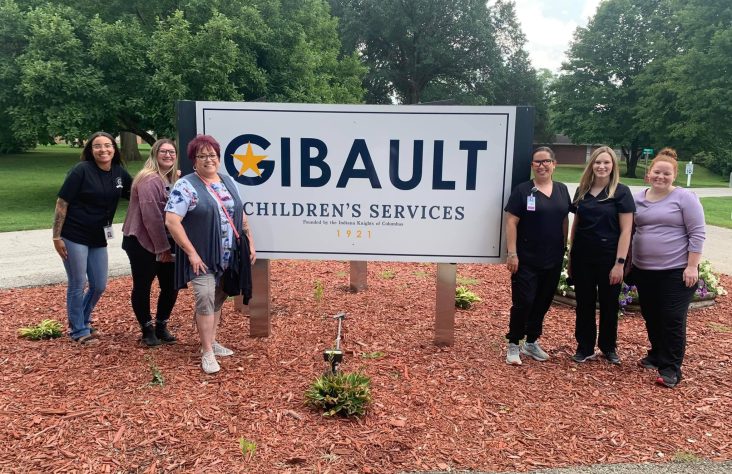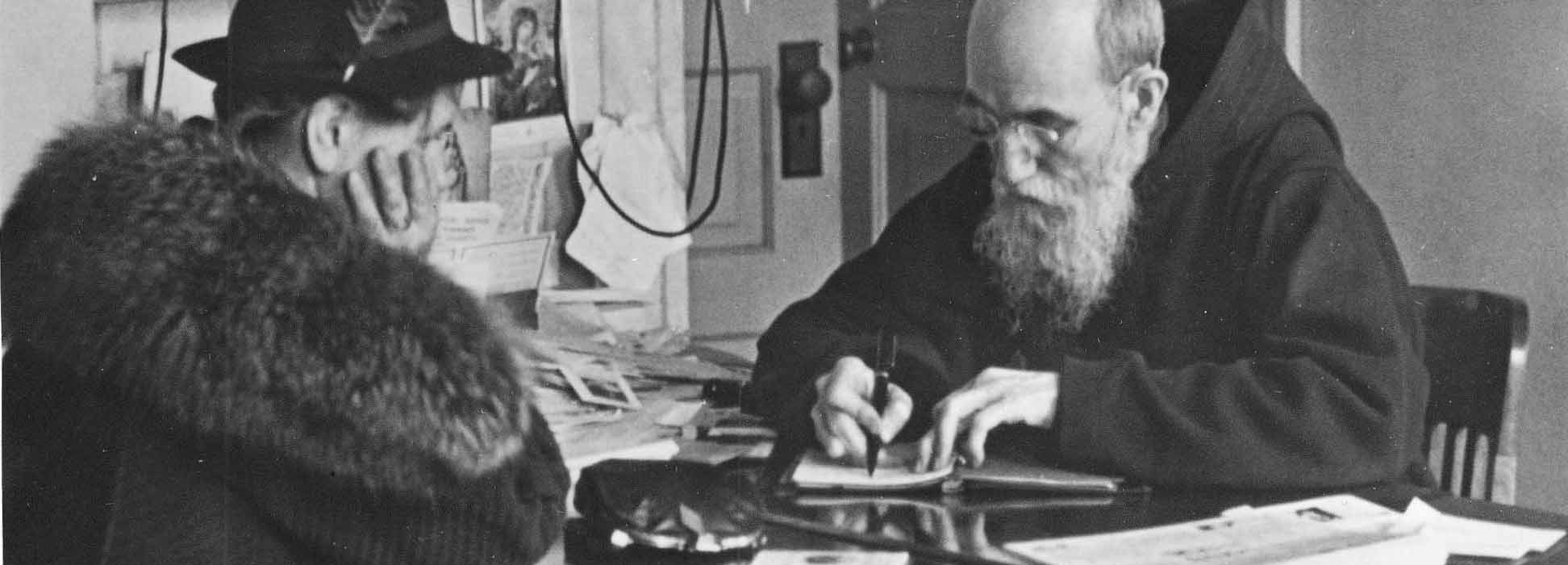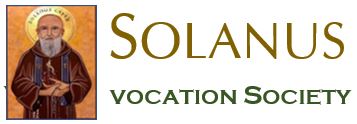November 4, 2022 // Diocese
Solanus Vocation Society Supports Calls to Priesthood, Religious Life
The Father Solanus Casey Vocation Society provides financial, personal, and prayer support to the seminarians of the Diocese of Fort Wayne-South Bend. Through its work and prayers, the society aims to encourage more generous responses to Christ’s call for laborers in the vineyard, raise awareness of the need to pray for the men and women who have taken the first step in responding to His voice, and express appreciation for their gift to the Church.
The society takes its name from Blessed Solanus Casey, a Franciscan friar who spent his final earthly years at St. Felix Friary in Huntington. The group invokes his intercession and promotes him as a recent example of holiness from within the diocese. The simple yet profound virtue which quickly put Blessed Solanus Casey on the path to canonization can inspire more men today to lead similar lives of priestly service.
Previously connected with the national Serra Club, the society operates in Fort Wayne, while a Serra Club chapter, which originally served the entire diocese, continues an active ministry in the South Bend-area. According to Aaron Kennerk, current President of the Father Solanus Casey Vocation Society, the benefit of separating to form a group in each city is that “you’re getting both sides of the diocese, really making sure that they feel the love, that we are praying for them, and anything they need, just let us know.”
The society functions as a nonprofit organization which assists the seminarians monetarily as well as spiritually. Along with the St. John Paul II Fund and annual Pentecost Collection, it contributes to the educational costs of the young men studying to become priests of the diocese. When ordained, they also receive a gift from the society to support their future ministry.
Formerly based at St. Joseph Hospital in downtown Fort Wayne, the society now utilizes the spiritual center at St. Vincent de Paul Parish for their meetings. The group gathers monthly, typically on First Fridays, for Holy Mass followed immediately by lunch and a guest speaker. The featured priest or seminarian shares his vocation story, and as the men speak, Kennerk notices that they visibly “light up with the joy of the vocation they have been called to and they chose to say ‘yes’ to.”
The society boasts a membership count in the thirties, composed of primarily retired Fort Wayne residents. It is slowly expanding and looking to continue growing, because, as Kennerk states, “the more relationships we can create with them, so that they can feel more and more supported, I think, the better.”
One pivotal aspect of these relationships comes through spiritual sponsorships. Sponsors intentionally pray for a particular seminarian with whom they have been matched. Quiet, prayerful support is the backbone of the group’s mission, and “spiritual sponsorship is another step of individualizing the seminarians and having a one-on-one person committed to praying for them.” The society further fosters friendships with the seminarians by hosting biannual Christmas dinners to meet them and their parents and express gratitude for their study, prayer, service, and witness to the diocese.
On their birthdays and at Christmas, the society mails cards to each seminarian. In his speech at the most recent meeting, Father Brian Isenbarger mentioned his appreciation for these communications from the society during his years of study. Many seminarians have shared that receiving mail, especially from children, greatly encourages them as well. Kennerk’s four- and five-year-old children write birthday cards for those he sponsors. He highlights the value of these homemade greetings. “They love it! Because when you’re in school with a bunch of college students, you don’t get that as much, and you miss your family.” Kennerk adds that the seminarians frequently respond with gratitude and assurances of their prayers for the sender and for the whole diocese.
From Kennerk’s perspective, “getting the letters really helps them know why they’re doing this, because they’re saying yes to God, but they’re also doing it for us.” In view of their complete self-sacrifice to serve the diocesan community, “why wouldn’t we want to feel called to reach out to them and say, ‘hey, thank you for what you are doing’?”
Forming personal relationships with seminarians also promotes openness to and understanding of discernment and, in Kennerk’s view, their witness to families “helps potentially foster more vocations” in children and young people.
In addition to the support society members offer the seminary students, they encourage vocations to the religious life. The organization co-sponsors a diocesan women’s vocations poster which displays the daughters of the diocese who are in formation either for consecrated virginity or with a community of sisters. The posters prompt prayers for these women in their discernment and invites other young ladies to consider this vocation. Of the laity’s consciousness of religious life, Kennerk points out, “more awareness that that’s also something women go into is powerful, and you almost need more things like posters to tell them, because you don’t see that on a daily basis.”
While several orders of religious sisters work within the diocese, their presence is less visible than that of priests, and most Catholics rarely interact with religious brothers and sisters. In the past, the society regularly hosted dinners for religious, but as the number of sisters able to attend declined, these events ceased. Following this change, Kennerk commented, “We turned our focus more toward the diocesan priests that we have and the seminarians, but we still hold the sisters close to us in wanting to find ways, when we can, to support them.”
The society does this primarily through prayer, and Kennerk urges that “we desperately need more people to pray for vocations. And not just for the priesthood. Yes, it’s a focus of ours, but not just for the priesthood.”
This earnest hope for an increase in answers to God’s calling both to the priesthood and religious life is the heart of the society’s work.
The best news. Delivered to your inbox.
Subscribe to our mailing list today.







